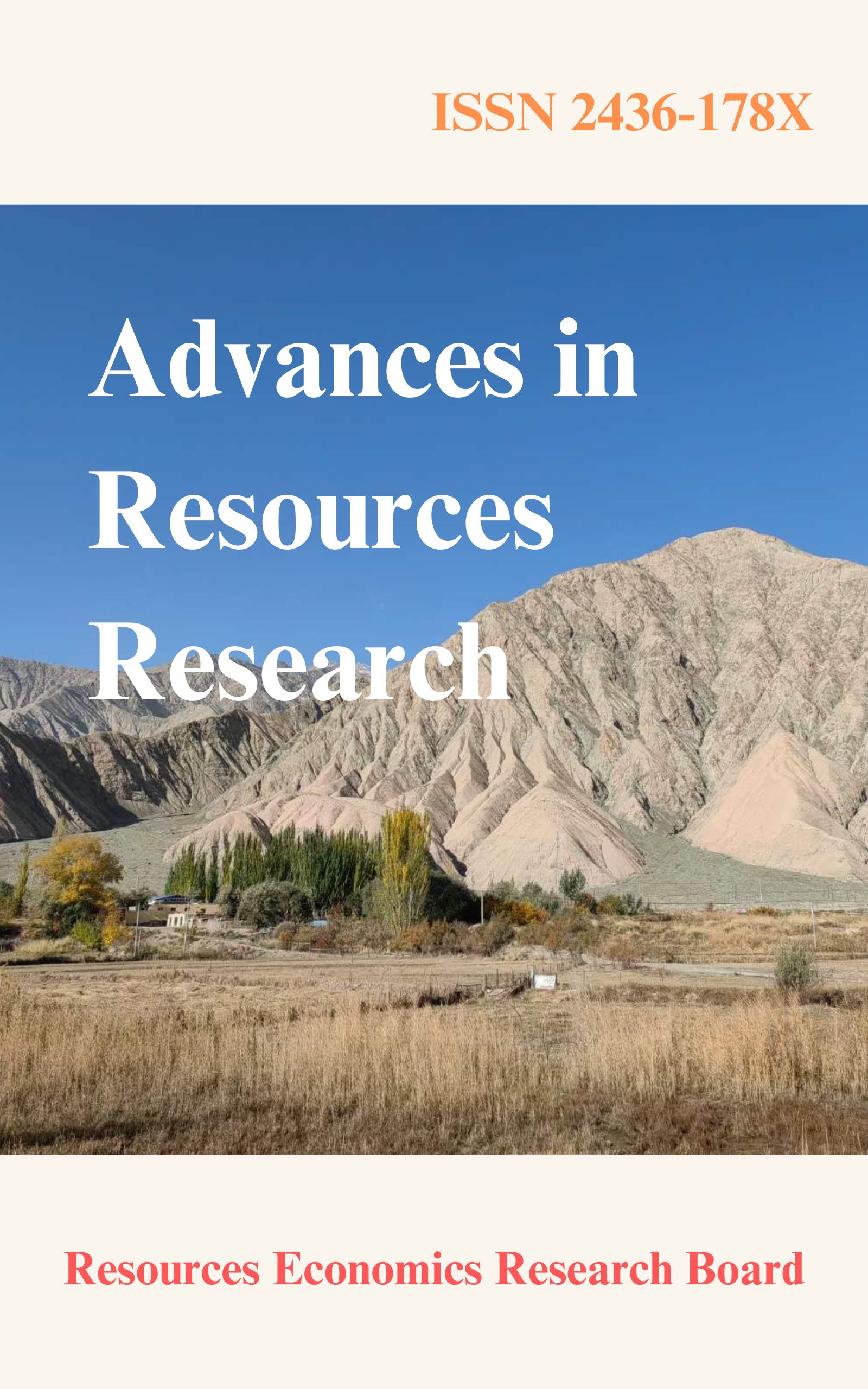Advances in Resources Research is a fully open-access, peer-reviewed e-journal (J-STAGE Open) published quarterly. It emphasizes various topics related to energy sources, food resources, water resources, and other relevant subjects. The journal welcomes both review articles and original research articles. There are no restrictions on the qualifications required for submission; anyone can contribute to the journal. Read more >>>
Featured Articles
Xianmu Bao, Zhanfeng Gu, Daoyong Lin, Zhidong Hou
Published: October 18, 2024
Advances in Resources Research, 2024, 4(4), 514-533. DOI: 10.50908/arr.4.4_514
[Review Paper] Big data-driven oil well optimization: Technological innovation and future outlook
Xiaoqiang Zhou, Wenguang Li, Wenhua Dong
Published: October 18, 2024
Advances in Resources Research, 2024, 4(4), 534-550. DOI: 10.50908/arr.4.4_534
[Review Paper] Research progress on the evaluation of shale oil mobility: Geological characteristics and integrated assessment methods
Qingqi Zhang, Guangwen Hou
Published: October 18, 2024
Advances in Resources Research, 2024, 4(4), 551-581. DOI: 10.50908/arr.4.4_551
[Review Paper] Carbonated water flooding technology in oilfield development: Applications and research frontiers
Mingjie Ma, Wenbo Zhang
Published: October 18, 2024
Advances in Resources Research, 2024, 4(4), 582-603. DOI: 10.50908/arr.4.4_582
[Review Paper] Current status and prospects of sand control technology in oilfield production: Technological advances, challenges, and development directions
Yijie Li, Weibei Sun, Yangdong Tang
Published: October 18, 2024
Advances in Resources Research, 2024, 4(4), 604-623. DOI: 10.50908/arr.4.4_604
[Review Paper] The innovative applications and prospects of artificial intelligence in agricultural research: Gene editing, crop improvement, and intelligent data nalysis
Beifang Liu, Hongtao Jiang, Lili Li
Published: October 18, 2024
Advances in Resources Research, 2024, 4(4), 624-653. DOI: 10.50908/arr.4.4_624
[Review Paper] The application and prospects of gene editing technology in enhancing crop yields: A review
Dawei Li, Xiaojin Liu, Hui Wang, Shengping Yuan, Li Jiang
Published: October 18, 2024
Advances in Resources Research, 2024, 4(4), 654-667. DOI: 10.50908/arr.4.4_654
[Review Paper] Applications and recent advances in artificial intelligence for soil data analysis
Kunxu Lu, Weisi Yan, Huilan Tan
Published: October 18, 2024
Advances in Resources Research, 2024, 4(4), 668-680. DOI: 10.50908/arr.4.4_668
[Original Paper] Research on big data-driven rice crop rotation systems: Optimization strategies and virtual case studies
Yifeng Cai, Qinyi Zhang, Haiquan Huang
Published: October 18, 2024
Advances in Resources Research, 2024, 4(4), 681-702. DOI: 10.50908/arr.4.4_681
[Review Paper] A review on big data analysis and the application of machine learning and deep learning in crop molecular breeding
Yulan Li, Yali Xu, Meihong Wang
Published: October 18, 2024
Advances in Resources Research, 2024, 4(4), 703-727. DOI: 10.50908/arr.4.4_703
[Review Paper] A review of crop nutritional omics and the molecular regulation mechanisms of their nutritional traits
Haitao Zhou, Xu Qi, Chengcai Xiong
Published: October 18, 2024
Advances in Resources Research, 2024, 4(4), 728-740. DOI: 10.50908/arr.4.4_728
[Review Paper] The research progress on soil nitrogen addition: Methods, ecological impacts, and prospects
Weijun Guo, Juan Su, Wenbin Han
Published: October 18, 2024
Advances in Resources Research, 2024, 4(4), 741-753. DOI: 10.50908/arr.4.4_741
[Review Paper] The key role of nitrogen fertilizer in crop rotation: Impact factors and efficiency improvement
Chenxu Chen, Naxin Gu, Yongyi Jiang
Published: October 18, 2024
Advances in Resources Research, 2024, 4(4), 754-769. DOI: 10.50908/arr.4.4_754
[Review Paper] Rice intercropping systems: Ecological benefits, economic returns, and technological prospects
Shubin Huang, Qingjiao Lin, Qinqin Ouyang
Published: October 18, 2024
Advances in Resources Research, 2024, 4(4), 770-791. DOI: 10.50908/arr.4.4_770
[Review Paper] The evolution of ecological agriculture: Technological innovations, environmental impact, and future challenges
Yongqin Wang, Ping Zhang, Xinyi Gu
Published: October 18, 2024
Advances in Resources Research, 2024, 4(4), 792-805. DOI: 10.50908/arr.4.4_792
[Review Paper] The impact of climate change on water resources: Mechanism analysis, challenge assessment, and response strategies
Yimin Chen, Zhangwen Su, Xiaoyan Zhu
Published: October 18, 2024
Advances in Resources Research, 2024, 4(4), 806-818. DOI: 10.50908/arr.4.4_806
[Review Paper] New perspectives on delta wetland research: Ecological functions, conservation strategies, and future outlook
Jinghua Cai, Yuanman Lin, Hengzhang Gu
Published: October 18, 2024
Advances in Resources Research, 2024, 4(4), 819-835. DOI: 10.50908/arr.4.4_819
[Review Paper] A review of spatiotemporal variations in temperature and precipitation: Trend analysis, driving mechanisms, and methodological evaluation
Meihuan Yang, Yingying Zhao, Changgui Li, Jianyong Yang
Published: October 18, 2024
Advances in Resources Research, 2024, 4(4), 836-859. DOI: 10.50908/arr.4.4_836

